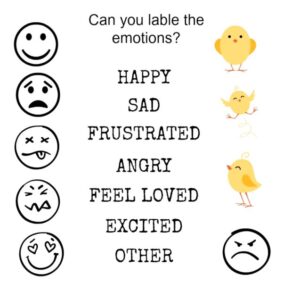I am a human being, with feelings and emotions and scars and flaws, just like anyone else. – Josh Gordon

In the chaos of life, it can often be difficult to be mindful.

So, now in this moment – Take a deep breath and notice what you are feeling, how you are feeling and where in your body is that feeling originating from. Set aside a few minutes every day and do this, because, if we pay attention to the alarms in our lives, they could save us.

Emotions such as worry, anger, loneliness, apprehension, nervousness, fear of the unknown, these emotions are uncomfortable by the design of itself. However, these emotions act as a fire alarm in our lives. They alert us to the threats that may lie ahead of us. But these emotions can help us only if we acknowledge them, and not brush them under the carpet.
Having a prolonged difficulty managing and handling emotions is also known as emotional dysregulation. It can present itself in many ways. For example, when an emotion presents itself when it is not helpful, or when it is not activated when needed, or the intensity being too high or too low.

Emotional dysregulation can present itself due to various reasons such as:
⦁ A lack of awareness, understanding, and acceptance of emotions
⦁ A lack of adaptive strategies for regulating emotions (the intensity and/or duration)
⦁ An unwillingness to experience emotional distress whilst pursuing desired goals
⦁ An inability to engage in goal-directed behaviours when experiencing distress
It is essential to understand that this can happen to any-one, our brains and body are not made in a perfect mould after all. However, this can become a cause of concern when it is reason of persistent distress and interferes with the daily activities of life.
If this happens, it is a sign that the individual

needs help to address and manage their emotions better and more efficiently. To start off with, here are a few tips and techniques using which one can manage difficult emotions that they struggle with.
4 Valuable Strategies:
⦁ Allow space for your emotions
⦁ Recognise your emotions
⦁ Allow and acknowledge your emotions
⦁ Accept them as they are
⦁ Investigate, and nourish (with self-compassion)
⦁ Practice Mindfulness
⦁ Identify your thoughts
⦁ Why is it so hard for you to stay with that emotion?
⦁ Do you feel scared or overwhelmed?
⦁ Do you feel lost and don’t know what to do?
⦁ Do you think that if you avoid your emotion, it will eventually go away?
⦁ Do you think that you just can’t tolerate that feeling and you shouldn’t be feeling that way?
⦁ Is it a combination of these options?
⦁ Work with your thoughts – get perspective
⦁ Can I actually dictate how I am feeling? If this were true, wouldn’t I have a different emotion now?
⦁ I have told myself many times in the past that something is necessary or must happen, was it true every time?
⦁ Just because I want to feel differently right now, does this mean my wish must come true in this very second?
⦁ How does it help that I have imposed this rule / I have this unrealistic and rigid expectation?
⦁ Is it realistic for me to expect to feel differently considering the context in which I am and the factors that are influencing me?
⦁ What does it mean that I cannot tolerate my emotion? Last time when I had the same emotion or a similar one, how did I manage to resolve it? Isn’t this past experience showing me that I can resolve it once again?
⦁ Practice acceptance
Experiencing negative emotions is part of human existence and it’s something that that we all experience, even though we might not always be aware of it.
⦁ Cultivate acceptance by noticing your patterns & resistance.
⦁ Use accepting self-talk, relaxation techniques, mindfulness and/or imagery

If the individual still has a hard time with the emotion or resisting engaging in unhelpful behaviours after these steps, then seeking professional mental healthcare is the way to go.
If you or someone you know are
⦁ Experiencing intense negative emotions that are holding you back
⦁ Emotions are intervening with your goal achievement
⦁ Negatively affecting your life
Get in touch with our mental health professionals to discover personalized strategies to handle them.
We at Society for Complementary Therapies, a Mental Health and Healing Centre are practising Non-invasive therapies such as:
⦁ Clinical Hypnotherapy
⦁ Sound and Resonance Therapy
⦁ Bio Neuro Feed Back
⦁ Art Therapy
⦁ Foot Reflexology
You can reach us at www.sfct.in or drop an email at info@sfct.in




Recent Comments